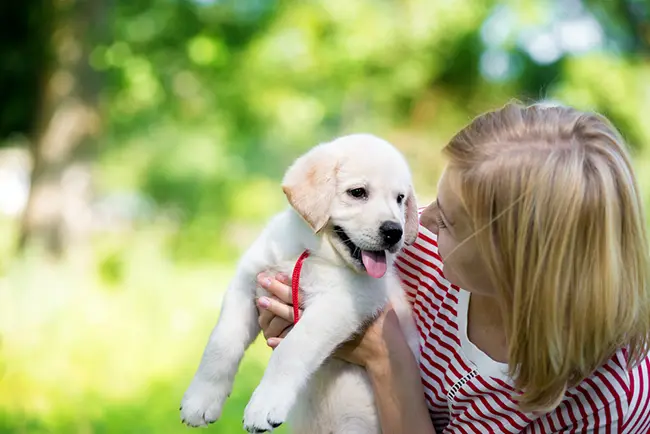
Whether you’ve been dreaming of getting a new puppy since you were a kid or are a first-time dog parent, the day you can pick up those cute little paws and bring them home is exciting!
Bringing a new puppy home is a little bit of work, too. It’s always best to start them off on the right paw.
If you live somewhere where it’s cold in the winter, figuring out how to socialize your new puppy can take a few tricks. This guide will help you get started.
Establishing a Routine
Establishing a daily routine for your puppy when it arrives in your home is vital to socializing your pup. It should include regular meal times, playtime and walks, and trips outside for potty breaks. Stick to the routine as much as possible to help your puppy grow accustomed to and learn the behavior that you expect.
To socialize a puppy, have calm, quiet time during the day for your pup to rest and relax. Schedule play dates and puppy classes to allow them to interact with other friendly, well-socialized dogs. This will help them get accustomed to being around and listening to other animals.
Making New Human Friends
Suppose you’ve recently purchased or adopted a new puppy. In that case, it’s important to socialize with them to help them adjust to their new surroundings and minimize any potential behavioral problems. To properly socialize your pup, introduce them to new people, especially children, as early as possible.
Start small by having them meet a few people for short visits. Then gradually expand the time your puppy spends with new people. As the holidays become more frequent, take your pup to public places like dog parks, pet stores, and other places where people congregate.
Right Socialization Environment
This includes a socialization environment that is free from stress and danger. Establishing boundaries and rewarding positive behavior is critical. When introducing your puppy to new people and animals, be sure to go at their pace and let them move away or interact as they feel comfortable.
Spend quality time playing and bonding with them as well. During walks, expose them to new settings and situations but always ensure their safety. Avoid overcrowded spaces or places with loud noises. If you want a natural solution to potty training and accident prevention for puppy care, click for pet grass pads.
Socialization Setbacks
Do so slowly and calmly when introducing your puppy to other animals and people to avoid any socialization setbacks. Make sure your puppy is always on a leash when out in public. Keep the pup away from areas you know will be too noisy and active.
Be prepared for stressful interactions with other animals, and take your pup to quieter, calmer places where it feels more comfortable. Positive reinforcement and reward-based systems are recommended for socialization. Take your puppy on short walks to get used to being around different people and animals in public.
Introducing your puppy to other animals slowly and paying attention to the dog’s body language can help prevent any socialization setbacks.
Follow This Guide on How to Socialize a New Puppy
Socializing your new puppy is essential in helping the puppy become a well-adjusted adult. Starting as early as possible is crucial to end each session positively. With the right approach, you can ensure your puppy grows into a confident, relaxed, and friendly adult companion.
If you enjoy this article, check out our blog for more exciting content!



